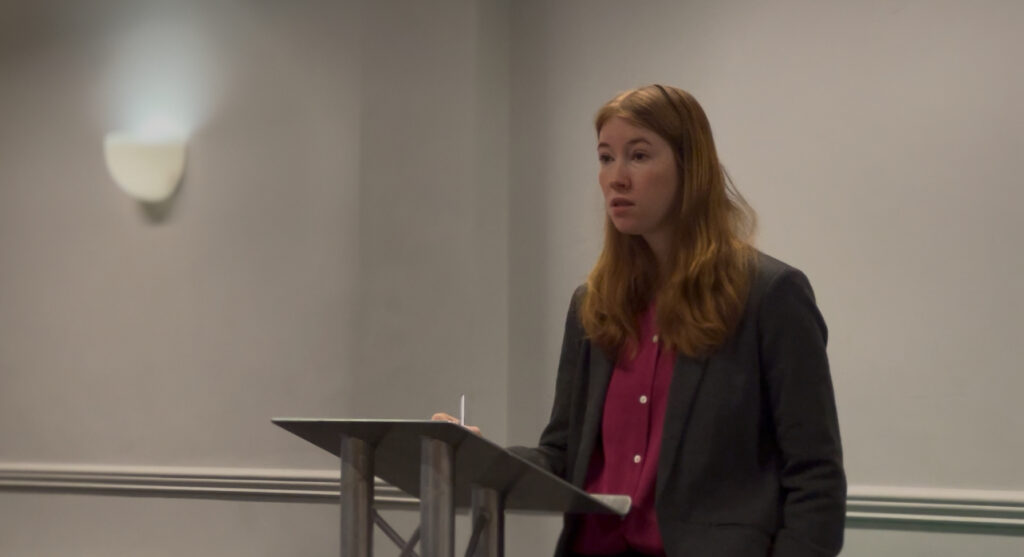January’s meeting with MP Helena Dollimore & Council Leader Julia Hilton
This January, we kicked off the new year with an insightful meeting that featured the newly elected Hastings & Rye MP, Helena Dollimore, and Hastings Borough Council Leader, Julia Hilton, to talk to our members about their respective plans for the business community in Hastings.
This meeting provided a deeper dive into national economic policies, local development priorities, as well as the challenges businesses face in the community.



National Economic Outlook & Business Support
MP Helena Dollimore outlined the Labour Government’s approach to revitalising the economy after years of stagnation. Highlighting key initiatives designed to support businesses and boost national growth, she spoke about:
- Economic Recovery: With a £22 billion budget gap inherited from the previous government, the current focus is on stabilising public finances while investing in public services and infrastructure.
- Support for Businesses: Corporation tax remains frozen, and small business employment allowances have been raised to ease financial pressure. Business rate reforms are also in progress to level the playing field between both physical stores and online retailers.
- Public Services Investment: The NHS received a much-needed £25 billion investment to reduce waiting lists, a crucial move for businesses dealing with employee absences due to delayed healthcare services.
- Infrastructure & Planning: Reforms are being introduced to lower the cost of building in the UK, ensuring Britain remains a competitive place for investment.
- Energy Security: The government is making investments in renewable energy projects, surpassing previous administrations’ efforts, to lower energy costs and reduce reliance on foreign imports.
Transport & Connectivity
Hastings businesses are held back by poor transport links, including the slow rail connection to London, underdeveloped road infrastructure like the A21, and unreliable bus services. Concerns were raised about proposed plans to build a railway over the A21, with doubts about its effectiveness in improving connectivity.
Town Centre Regeneration
Hastings has been awarded £20 million as part of the Long-Term Plan for Towns, with efforts underway to determine how best to utilise the funds. Helena emphasised the importance of visible and tangible improvements, such as fixing broken pavements, repairing bus shelters, and offering grants to encourage businesses to occupy empty high street units.
The council is also overseeing the Public Realm Improvement Scheme and Castle Project, both expected to contribute to revitalising the town centre and improving tourism.
Crime & Anti-Social Behaviour
Shoplifting in the area has surged, creating security concerns for business owners and retail workers. Helena confirmed that previous police policies allowing thefts under a certain value to go unpunished have been scrapped, and an increase in neighbourhood policing and business partnerships are being prioritised to address anti-social behaviour. There is ongoing collaboration with national retailers and local authorities to tackle youth involvement in shoplifting.
Southern Water Failures & Compensation Demands
Helena has called for greater accountability from Southern Water following the recent severe water supply issues, sewage pollution, and flooding incidents, severely impacting local businesses, securing a parliamentary commitment to review compensation policies and legal loopholes that previously allowed the company to avoid paying affected businesses and residents. A cross-party effort is also underway to change the law, ensuring automatic and fair compensation for future water supply failures.
Education & Workforce Development
With more than half of students in Hastings & Rye leaving school without essential Maths and English qualifications, there is a pressing need for education reform. Issues within local academy chains were highlighted, including excessive administrative costs at the expense of classroom funding. Government intervention is expected, with schools being moved to new management. The importance of businesses partnering with schools to offer mentorship, training, and apprenticeships to better prepare young people for the workforce was also emphasised.
Hastings Borough Council’s Priorities
Council Leader Julia Hilton provided insights into the council’s five main priorities for the year:
- Financial stability: The council is under pressure, with 40% of its budget spent on temporary accommodation for homeless families. A housing acquisition program aims to reduce costs and provide better living conditions.
- Tackling the housing crisis: The council has purchased 88 properties to reduce reliance on expensive private landlords. Future plans include acquiring more homes and improving housing quality.
- Reducing poverty & health inequality: Focusing on providing stable jobs, skills training, and ensuring that regeneration efforts benefit the most deprived communities.
- Climate & biodiversity initiatives: Aiming for net-zero carbon emissions by 2030, Hastings Borough Council is seeking business collaboration on sustainability projects and green skills development.
- Boosting pride in Hastings: From graffiti removal to heritage site preservation, the council is committed to improving public spaces.
The Future of Local Governance: Devolution & Structural Changes
A proposed Sussex-wide mayoral authority could reshape local governance, merging borough and district councils into unitary authorities. Concerns have been raised about Hastings being overshadowed in a larger Sussex-wide structure, highlighting the need for strong local representation. The council is preparing to consult businesses and residents to ensure local voices shape the restructuring process.